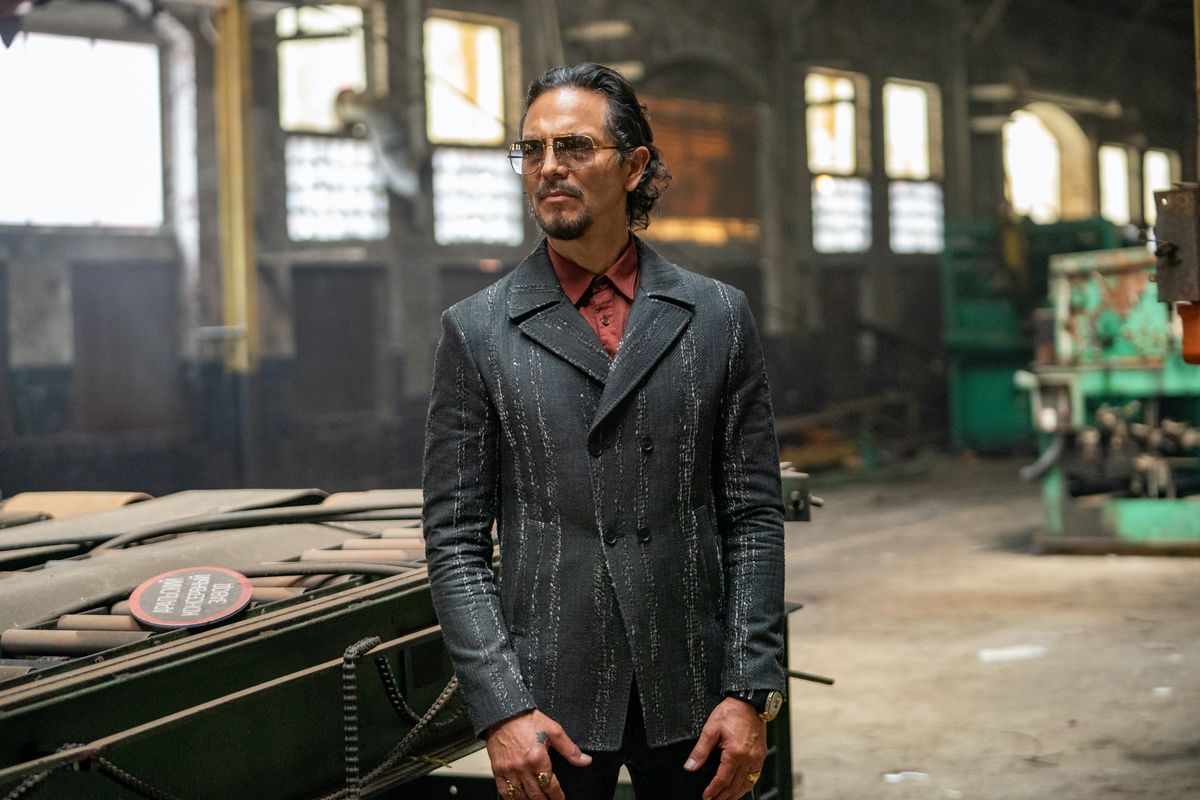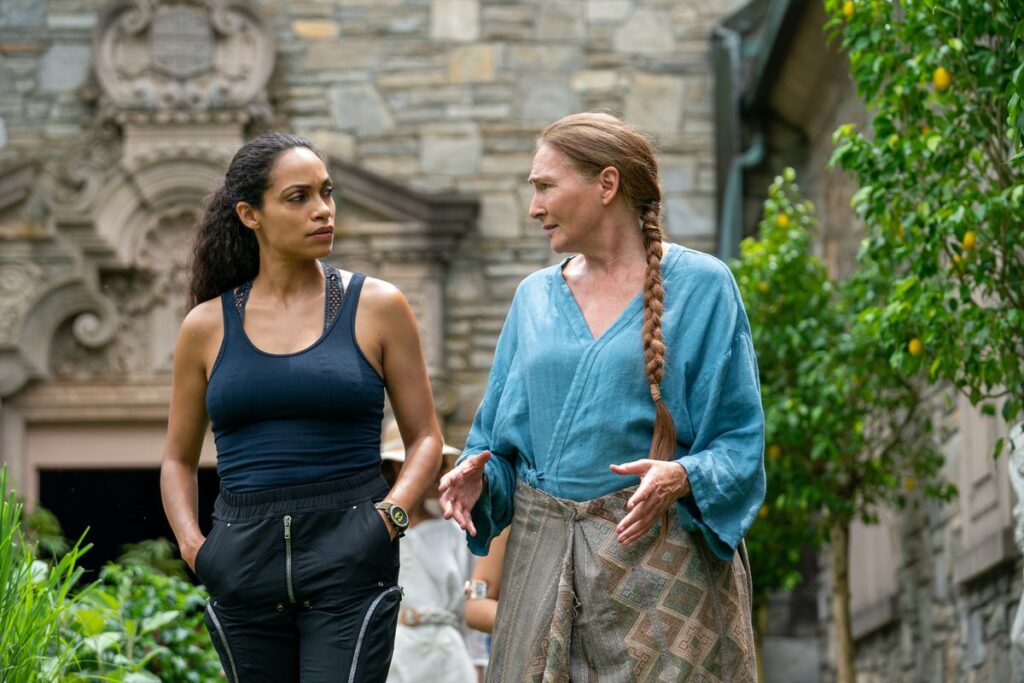DMZ bears the unfortunate distinction of suffering from one of the most severe pandemic disruptions on a show that’s made it to air. Originally planned as a proper ongoing series for HBO Max, the series halted production in March 2020 after filming the pilot, resuming in late 2021 as a four-episode miniseries. According to showrunner Roberto Patino, this lead to DMZ becoming a smaller, more personal story. Under these constraints, it’s miraculous that DMZ has arrived with a focused, coherent story to tell. It’s just not a particularly satisfying one.
Loosely adapted from the Vertigo comic by Brian Wood and Riccardo Burchielli, DMZ follows Alma “Zee” Ortega (Rosario Dawson), a medic in a New York City fractured by a second American civil war. In this alternate near-future, the country is divided into the Free States of America and what’s left of the United States, with Manhattan declared a “Demilitarized Zone” — effectively a no man’s land abandoned by both governments, where those who could evacuate left and those who could not are forced (or choose) to fend for themselves.
Nearly a decade ago, on Evacuation Day — when Manhattan became the DMZ and many residents tried to flee the city — Alma was separated from her son on her way out, losing him in the DMZ as she made it to safety. In the intervening years, she’s been looking for him everywhere, and the series immediately begins with her learning from a reliable source that he may still be in the DMZ, and thus goes on the perilous journey to find him.
Richard DuCree/HBO Max
DMZ establishes both its status quo and Alma’s motivations quickly and poorly. Viewers who wish to understand what led to the collapse of the United States and why Manhattan is a demilitarized zone will be unsatisfied; the rules of this alternate future are fuzzy at best. The series is best approached on character-driven terms: Alma is out to find her son, and goes to the most dangerous place in the country to find him. A place where she happens to have uncomfortable past connections.
In spite of this personal focus, DMZ’s four episodes aren’t enough to make Alma’s journey a satisfying one — the world around her is too rich to ignore. This is the best thing about DMZ, a series that, once underway, feels more lived-in and full of life than many genre shows. Life in the DMZ is dangerous but not despondent — it’s a community of black and brown New Yorkers banding together to make it through a difficult time, in spite of forces without and within that would rather have them subjugated in one way or another. This danger is personified by Paco Delgado (Benjamin Bratt), a charismatic gang leader in the vein of Roger Hill’s Cyrus from The Warriors, seeking to unite the DMZ’s various sets while also establishing himself as the recognized leader of the DMZ in the island’s first election.

Photo: Richard DuCree/HBO Max
Under showrunner Roberto Patino, DMZ is quietly transformed into a Latin American story, not just by virtue of casting Latinx talent, but by focusing on characters from Manhattan’s Spanish Harlem neighborhood and Nuyorican culture. It’s a show that cares about how people live, in music and slang and the rot of machismo that threatens to make that culture poisonous. This specificity is admirable — a Latinx genre show that doesn’t make a big deal of being about Latinidad! — but again: the rest of the DMZ is there, compelling and full of questions that are hard for the viewer to forget, with good reason. Out of necessity, DMZ is the Alma Ortega show, but other, incoherent-but-compelling fragments regularly present themselves, tugging at what could have been.
Because DMZ could have been a timely work. The miniseries already grazes dozens of ideas relevant to the current moment: It suggests a future where Americans violently tear their own country apart in a present where it seems all too plausible. It presents a dystopia that’s about people building communities instead of indulging in cliché survivalist fantasy. And in the absence of law enforcement, it suggests an interrogation of their necessity. The list goes on: DMZ has so much room to tell compelling, vital stories, centering the people that have otherwise been abandoned in our popular narratives. You can see the bones of them here; every 10 minutes another missed opportunity flashes in the periphery. Instead, DMZ reflects the country it depicts: full of promise, but left in shambles.

